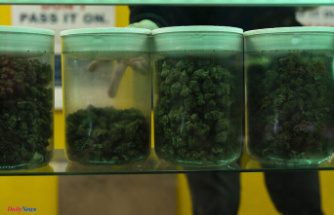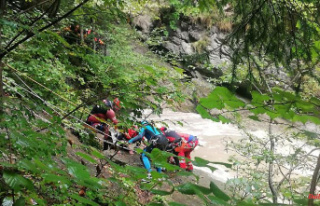In autumn, ripe acorns and beechnuts fall en masse. But in some regions that could be sparser this year.
Freising (dpa / lby) - The consequences of the heat can currently also be observed on the forest floor: some of the fallen acorns are very small, beechnuts are hollow. "It's noticeable," says Dirk Schmechel from the Bavarian State Institute for Forestry and Forestry in Freising. The regional situation in Bavaria is very different.
According to him, the reason for this is, among other things, the months of drought that hit northern Bavaria in particular this summer. "Then it can be observed in forest trees that fruit buds are dropped, smaller fruits are formed or hollow ones as with beechnuts," explains Schmechel. "Fruit ripening requires a lot of nutrients and energy." But the tree needs this to survive in times of drought. This is why some trees shed their leaves much earlier than usual this year, some of them even green ones.
Nevertheless, the forest animals would not have to starve in winter, says Schmechel. "They have such a wide range of food." For example, if the wild boar found fewer acorns, they would eat more tubers, worms, snails, and insect larvae instead.
For the forest itself, too, there are initially no negative effects if some of the trees bear less fruit. "We assume that it is enough for the natural regeneration of the forests," says the expert. The Bavarian state forests also see no reason for concern. Forest trees bear fruit at irregular intervals and not every year, says Stefan Wimberger from the Bavarian State Forests. "In the next fattening year, the trees can basically develop their fruit normally again."












